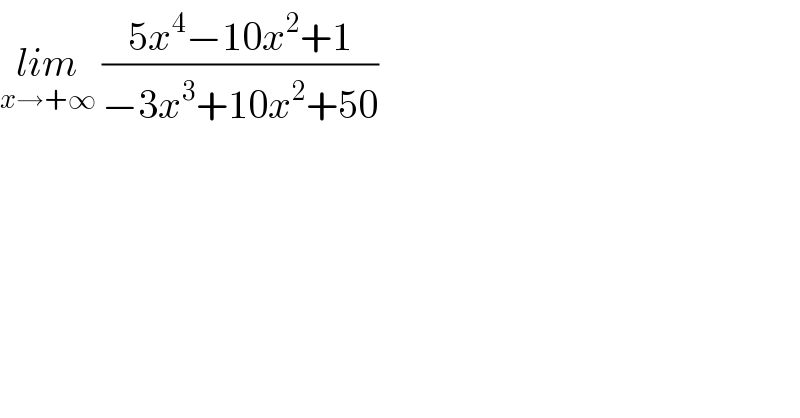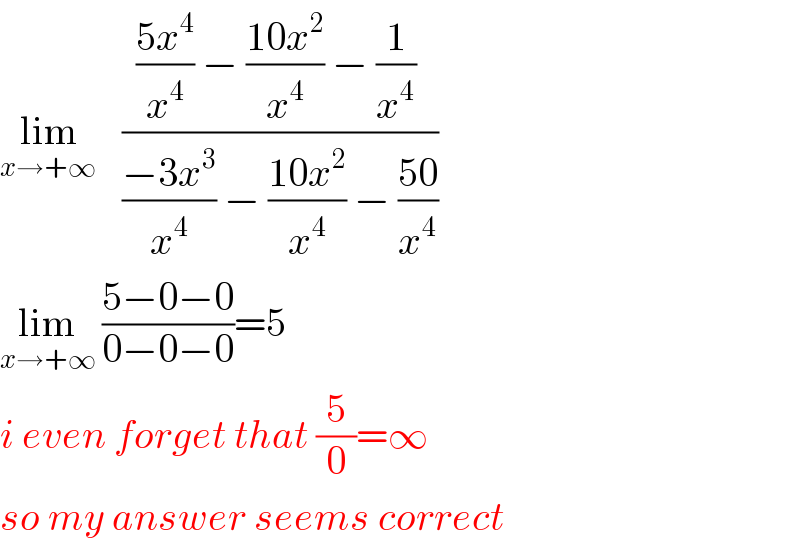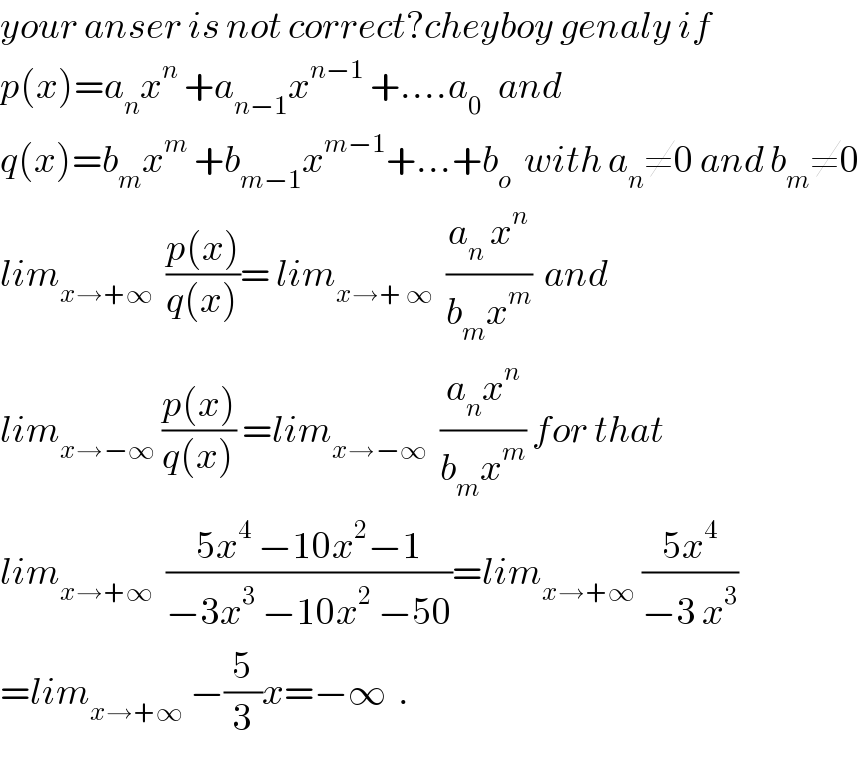
Question and Answers Forum
Question Number 28770 by Rasheed.Sindhi last updated on 30/Jan/18

Commented by Cheyboy last updated on 30/Jan/18

Commented by abdo imad last updated on 30/Jan/18

Commented by abdo imad last updated on 30/Jan/18

Commented by Cheyboy last updated on 30/Jan/18

Commented by Cheyboy last updated on 30/Jan/18

Commented by Rasheed.Sindhi last updated on 30/Jan/18

Answered by ajfour last updated on 30/Jan/18
![=lim_(x→+∞) x[((5x^3 −10x−(1/x))/(−3x^3 +10x^2 +50))] =(lim_(x→+∞) x)×lim_(x→+∞) (((5−((10)/x^2 )−(1/x^3 ))/(−3+((10)/x)+((50)/x^3 )))) = −(5/3)lim_(x→+∞) (x) = −∞ .](Q28778.png)
Commented by Rasheed.Sindhi last updated on 30/Jan/18

Commented by Rasheed.Sindhi last updated on 30/Jan/18

